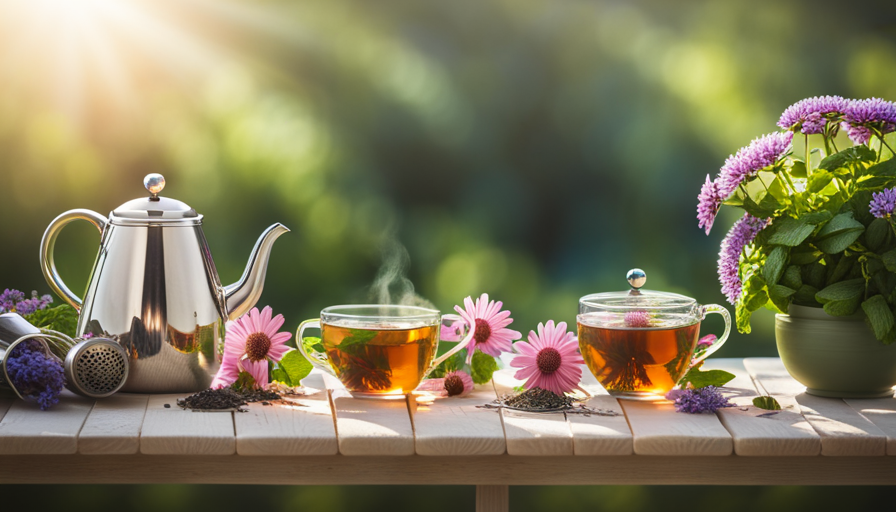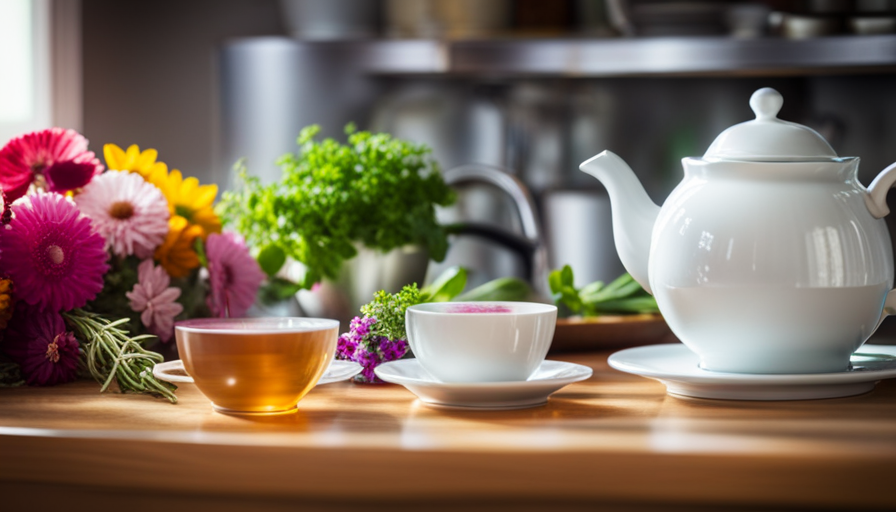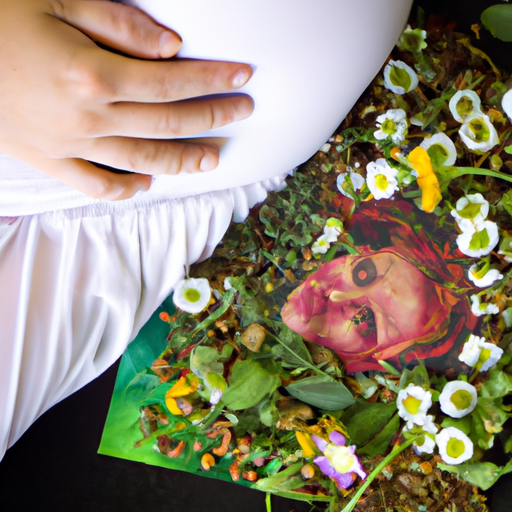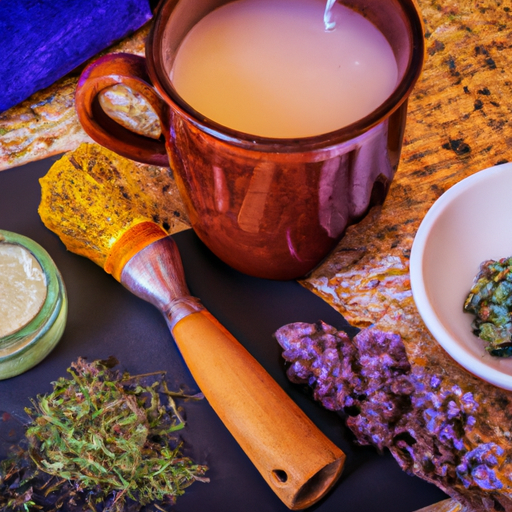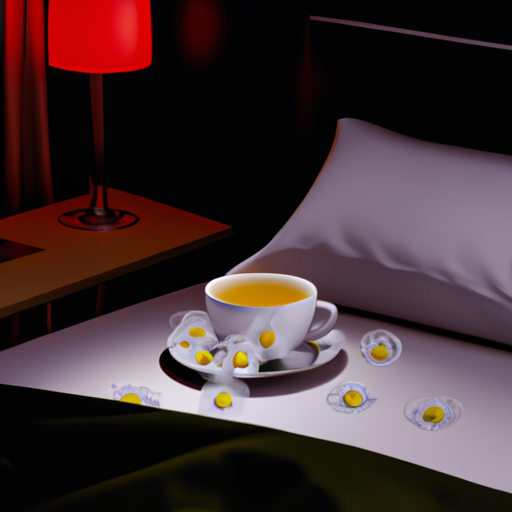Hey! Have you ever thought about how many cups of herbal tea you should have each day? Let me share some tea with you! As a tea lover, I have explored the world of herbal teas and their incredible advantages.
In this article, we’ll explore the recommended daily intake of herbal tea, so you can savor the goodness without going overboard.
Herbal tea, also known as tisane, is a beverage made from the infusion of various plants, herbs, or spices. It’s a delightful and refreshing alternative to traditional tea, offering a wide range of flavors and potential health benefits. But how much is too much?
We’ll dive into the evidence-based recommendations and discuss the health benefits that herbal tea can bring to your daily routine. We’ll also explore the potential risks of excessive consumption, because as with anything, moderation is key.
So, grab your favorite mug, and let’s explore the world of herbal tea together!
Key Takeaways
- The recommended daily intake of herbal tea can vary depending on the individual and their specific needs.
- Consuming 2-3 cups of herbal tea per day is considered safe and beneficial for most people.
- Excessive consumption of herbal tea may lead to potential side effects such as an upset stomach or allergic reactions.
- Paying attention to your body’s signals is crucial for maintaining a healthy balance when consuming herbal tea.
Understanding Herbal Tea
So, how many cups of herbal tea should you be enjoying in a day? Understanding different blends and exploring the origins of herbal tea can help us find the answer.
Herbal teas are made from a variety of plants, each with its own unique properties and benefits. Some popular blends include chamomile, peppermint, and ginger. Chamomile tea, for example, is known for its calming effects, while peppermint tea can help with digestion. Ginger tea, on the other hand, is often used to relieve nausea.
The origins of herbal tea can be traced back to ancient civilizations, where it was valued for its medicinal properties. Today, herbal teas are enjoyed for both their taste and health benefits. It’s important to note that herbal teas are caffeine-free, making them a great alternative to traditional tea and coffee.
When it comes to the recommended daily intake of herbal tea, it can vary depending on the individual and their specific needs. It is generally recommended to start with one to two cups a day and gradually increase if desired. However, it’s always a good idea to consult with a healthcare professional for personalized advice.
Understanding the different blends and origins of herbal tea can help you find the right amount to enjoy each day. Now, let’s delve into the recommended daily intake and explore the benefits of herbal tea in more detail.
Recommended Daily Intake
For a healthy daily routine, it’s advisable to incorporate a moderate amount of this soothing beverage into your diet. When it comes to herbal tea, the recommended dosage varies depending on the individual and the specific type of tea.
Generally, consuming 2-3 cups of herbal tea per day is considered safe and beneficial for most people. However, it’s important to note that excessive consumption of herbal tea may lead to potential side effects such as an upset stomach or allergic reactions. It’s always best to start with a lower dosage and gradually increase it if needed.
To determine the right amount of herbal tea for you, it’s recommended to consult with a healthcare professional or a registered dietitian. They can assess your specific health needs and provide personalized advice. Additionally, it’s crucial to consider any pre-existing conditions or medications that may interact with certain herbal teas.
Now that we understand the recommended dosage and potential side effects of herbal tea, let’s delve into the incredible health benefits it offers.
Health Benefits of Herbal Tea
Indulging in a moderate amount of herbal tea can bring a myriad of health benefits to your daily routine. Not only does it provide a refreshing and soothing experience, but it also offers various health advantages.
Herbal tea is known for its natural antioxidants, which can help reduce inflammation and protect against chronic diseases such as heart disease and cancer. Different types and flavors of herbal tea have unique health benefits. For example, chamomile tea can promote relaxation and improve sleep quality, while peppermint tea can aid digestion and alleviate stomach discomfort. Green tea, another popular herbal tea, is rich in catechins that can boost metabolism and support weight loss.
In addition to these specific health benefits, herbal tea is also a great alternative to sugary beverages, making it a healthier choice for hydration. It’s low in calories and can be enjoyed hot or cold, providing a delicious and flavorful way to stay hydrated throughout the day.
However, it’s important to note that excessive consumption of herbal tea may have potential risks. Therefore, it’s crucial to maintain moderation and consult with a healthcare professional if you have any concerns.
Transitioning to the subsequent section about potential risks, it’s important to consider the balance between the benefits and potential drawbacks of herbal tea consumption.
Potential Risks of Excessive Consumption
Be cautious when consuming excessive amounts of herbal tea as it can potentially pose risks to your health. While herbal tea is generally safe and beneficial when consumed in moderation, excessive consumption can lead to potential side effects and long-term effects.
One potential side effect of excessive herbal tea consumption is an upset stomach. Some herbal teas contain compounds that can irritate the stomach lining, leading to symptoms such as nausea, vomiting, and diarrhea. Additionally, certain herbal teas, like chamomile or peppermint, can relax the lower esophageal sphincter, which may cause acid reflux or heartburn in some individuals.
Another potential risk of excessive herbal tea consumption is its impact on nutrient absorption. Some herbal teas, such as nettle or dandelion, have diuretic properties that can increase urination. This may lead to the loss of essential minerals like potassium and magnesium, which are important for overall health.
Long-term effects of excessive herbal tea consumption are not well-studied, but it’s possible that prolonged intake of certain herbal teas may have adverse effects on the liver or kidneys. Some herbal teas contain compounds that can be toxic to these organs when consumed in large quantities over an extended period.
While herbal tea can offer numerous health benefits, it’s important to consume it in moderation and maintain a balanced approach. Excessive consumption can potentially lead to side effects and long-term risks, so it’s best to enjoy herbal tea in a mindful and responsible manner.
Moderation and Balance
When it comes to consuming herbal tea, it’s important to listen to your body’s signals. Pay attention to how you feel after drinking a cup and adjust your intake accordingly.
Finding a balance that works for you is key, as excessive consumption can lead to potential risks. Additionally, it’s important to incorporate other hydrating beverages into your daily routine to ensure overall hydration.
Listening to your body’s signals
While sipping herbal tea, one can tune in to the subtle whispers of their body’s signals. Listening to these signals is crucial for maintaining a healthy balance and avoiding potential harm. Here are some important cues that your body might be sending you:
-
Increased heart rate or jitteriness: This could indicate that you’ve had too much caffeine and should consider reducing your tea intake.
-
Increased urination: This may suggest that you’re consuming too much herbal tea, as it has diuretic properties. Be mindful of your fluid intake.
-
Upset stomach or digestive issues: These symptoms may be a sign that you’re sensitive to certain herbal teas. Experiment with different types and listen to how your body responds.
-
Feeling relaxed and refreshed: This indicates that your body is responding well to the herbal tea and you’ve found a good balance.
-
Improved sleep quality: If you notice that you’re sleeping better after drinking herbal tea, it may be a positive signal that you’ve found a suitable amount for your body.
By paying attention to these signals, you can find a balance that works for you and supports your overall well-being. Transitioning into the next section, let’s explore some practical tips for finding that balance.
Finding a balance that works for you
Achieving a harmonious equilibrium in my tea consumption is essential for maintaining optimal well-being. Finding a routine that works for me has been key in striking the right balance.
I started by experimenting with different blends of herbal tea, trying out various flavors and ingredients. This allowed me to discover which ones I enjoyed the most and which ones had the desired effects on my body. It’s important to listen to my body’s signals and adjust accordingly.
Some days, I may feel the need for a few cups of herbal tea to relax and unwind, while other days, I may only have one cup in the morning to start my day off right. By finding a balance that works for me, I can enjoy the benefits of herbal tea without overdoing it.
Incorporating other hydrating beverages, such as infused water or coconut water, can also add variety and hydration to my routine.
Incorporating other hydrating beverages
Finding a balance that works for you is key when it comes to enjoying herbal tea. However, it’s important to remember that herbal tea shouldn’t be your sole source of hydration. Incorporating other hydrating drinks into your routine can help ensure you’re staying properly hydrated throughout the day.
While herbal tea is a great option, don’t forget about the benefits of water, infused water, and unsweetened herbal iced teas. These beverages can provide a refreshing change and help you meet your daily hydration needs. Experiment with different combinations and flavors to find what works best for you.
By incorporating a variety of hydrating drinks into your daily routine, you can stay properly hydrated and reap the benefits of different flavors and nutrients.
Now, let’s explore some herbal tea alternatives that can add even more variety to your hydration routine.
Herbal Tea Alternatives
There are plenty of tasty herbal tea alternatives to enjoy throughout the day. If you’re looking to switch things up from traditional herbal tea recipes, there are a variety of options available that offer both flavor and relaxation benefits.
One popular alternative is chamomile tea, which is known for its calming properties and can help promote a good night’s sleep.
Another option is peppermint tea, which is refreshing and can aid in digestion.
For those who enjoy floral flavors, hibiscus tea is a great choice. It not only tastes delicious but also provides antioxidants that support heart health.
If you’re in need of an energy boost, green tea is a fantastic alternative. It contains caffeine and offers a host of health benefits, including improved brain function and weight loss support.
Now that you have some herbal tea alternatives to try, let’s move on to brewing and serving tips.
Brewing and Serving Tips
To brew and serve your herbal tea alternatives, start by selecting your favorite flavor and steeping it in hot water for a few minutes, allowing the soothing aroma to envelop your senses like a warm hug on a chilly morning.
Brewing techniques can vary depending on the type of herbal tea you choose. For lighter herbal teas like chamomile or mint, a shorter steeping time of 3-5 minutes is recommended to prevent bitterness. On the other hand, stronger herbal teas like ginger or hibiscus may require a longer steeping time of 5-7 minutes to unlock their full flavor potential.
Experimenting with different brewing techniques can help you find the perfect balance of taste and strength. If you prefer a stronger brew, try increasing the amount of tea leaves or extending the steeping time slightly. For a milder cup, reduce the amount of leaves or shorten the steeping time. Remember, personal preference plays a big role in brewing herbal tea, so feel free to adjust the brewing process to suit your taste.
When it comes to herbal tea flavors, the options are virtually endless. From soothing chamomile to invigorating peppermint, there’s a flavor to suit every palate. Whether you enjoy floral, fruity, or spicy notes, there’s a herbal tea flavor waiting to be discovered. So, why not incorporate herbal tea into your routine and start your day with a comforting cup of herbal goodness?
Incorporating Herbal Tea into Your Routine
Start your morning off right by incorporating the soothing and invigorating flavors of herbal tea into your daily routine. Herbal tea is a great way to add a boost of health and wellness to your day. Understanding the different types of herbal tea and their benefits can help you choose the ones that align with your needs.
There are many types of herbal tea available, each with its own unique set of benefits. For example, chamomile tea is known for its calming properties, making it a great choice to help you unwind after a long day. On the other hand, peppermint tea is refreshing and can aid in digestion. Additionally, ginger tea can help reduce inflammation and boost your immune system.
Incorporating herbal tea into your routine is easy. Start by replacing your morning coffee with a cup of herbal tea. You can also enjoy a cup in the afternoon as a pick-me-up or in the evening to wind down before bed. Experiment with different flavors and find the ones that you enjoy the most.
By incorporating herbal tea into your daily routine, you can experience the numerous benefits that these herbs have to offer. So, start your day off right with a cup of herbal tea and explore the rich culture surrounding this soothing beverage.
Exploring Herbal Tea Culture
Now that we’ve discussed how to incorporate herbal tea into our daily routines, let’s take a moment to explore the fascinating world of herbal tea culture. Herbal tea has a rich history and plays an important role in various cultures around the world.
One aspect of herbal tea culture that I find particularly intriguing is the wide range of herbal tea recipes that have been passed down through generations. These recipes often combine different herbs and spices to create unique flavors and therapeutic benefits. Whether it’s a soothing chamomile blend or an invigorating ginger and lemon infusion, there’s a herbal tea recipe for every mood and occasion.
Beyond its taste and aroma, herbal tea also holds significant cultural significance in many societies. In some traditions, herbal tea is seen as a form of medicine, used to promote overall wellness and balance. In others, it is a symbol of hospitality, offered to guests as a gesture of welcome and friendship.
As we delve deeper into the world of herbal tea, we will explore more about its cultural significance and the different recipes that are cherished in various parts of the world. But before we do that, let’s take a moment to reflect on what we’ve learned so far and draw some conclusions about incorporating herbal tea into our daily lives.
Conclusion and Final Thoughts
As we come to the end of our exploration of herbal tea culture, it’s clear that incorporating this ancient beverage into our daily routines can bring a sense of wellness and connection to traditions that have stood the test of time. Herbal teas offer a wide range of health benefits, from promoting relaxation to boosting the immune system. However, it’s important to listen to your body’s signals and find a balance that works for you.
When it comes to how many cups of herbal tea to drink in a day, there is no one-size-fits-all answer. It ultimately depends on your individual needs and preferences. Some people may find that a cup or two of herbal tea in the morning helps them start their day on a calm note, while others may enjoy a cup in the evening to unwind before bed.
To help you find a balance, I’ve created a table that outlines some common herbal teas and their potential benefits:
| Herbal Tea | Potential Benefits |
|---|---|
| Chamomile | Promotes relaxation and aids in sleep |
| Peppermint | Soothes digestion and relieves headaches |
| Ginger | Reduces nausea and supports digestion |
| Lemon balm | Calms the mind and helps with anxiety |
| Echinacea | Boosts the immune system and fights infections |
Remember, moderation is key. Pay attention to how your body reacts to different herbal teas and adjust accordingly. If you experience any adverse effects, such as an upset stomach or allergic reaction, it’s best to consult with a healthcare professional. By listening to your body’s signals and finding a balance, incorporating herbal tea into your daily routine can be a delightful and beneficial experience.
Frequently Asked Questions
Can herbal tea be consumed by pregnant women or nursing mothers?
Yes, herbal tea can be safely consumed by pregnant women and nursing mothers. Many herbal teas, such as ginger and peppermint, have been used for centuries to alleviate morning sickness. They’re a natural and effective remedy for nausea and digestive issues.
Additionally, certain herbal teas like fenugreek and fennel can help boost lactation in nursing mothers. However, it’s always advisable to consult with a healthcare professional before adding herbal tea to your daily routine.
Are there any specific herbal teas that can help with weight loss?
When it comes to weight loss, incorporating herbal teas into your routine can be a game-changer. The benefits of herbal tea include boosting metabolism, promoting digestion, and suppressing appetite.
Some of the best herbal teas for weight loss are green tea, oolong tea, and peppermint tea. These teas contain compounds that can increase fat burning and aid in weight management.
So, if you’re looking to shed some pounds, adding these herbal teas to your daily routine may be a smart choice.
Can herbal tea interact with certain medications?
Herbal tea can interact with certain medications and affect blood pressure. It’s important to be aware of potential side effects when consuming herbal tea. Some herbs like hawthorn and ephedra can increase blood pressure, so individuals with hypertension should exercise caution.
Additionally, some herbal teas may interact with medications like blood thinners or anti-anxiety drugs. It’s recommended to consult with a healthcare professional before incorporating herbal tea into your routine, especially if you’re taking any medications.
How long can herbal tea be stored and remain fresh?
How long can herbal tea be stored and remain fresh? Have you ever wondered about the shelf life of herbal tea? To ensure its freshness, it’s important to store it properly.
The best ways to store herbal tea include keeping it in an airtight container, away from heat and moisture. Generally, herbal tea can be stored for up to two years. However, it’s always best to check the expiration date on the packaging for specific guidelines.
Is it safe for children to consume herbal tea?
Children can consume herbal tea, but safety concerns should be taken into consideration. Some herbs used in herbal tea may not be suitable for children due to potential risks and side effects. It is important to consult with a healthcare professional before introducing herbal tea to a child’s diet.
However, if deemed safe, herbal tea can offer potential benefits such as soothing digestion, promoting relaxation, and providing antioxidants. Moderation is key, and it’s best to start with small amounts and observe any reactions.
Conclusion
In conclusion, after exploring the world of herbal tea, I’ve found it to be a delightful and healthful addition to my daily routine. Its numerous benefits, from boosting immunity to aiding digestion, make it a wise choice.
However, like with anything, moderation is key. Just as we balance our lives, we should also balance our tea intake. So, brew a cup of herbal goodness, savor its warmth, and let it be a gentle companion on your journey to wellness.
Cheers to a cup of herbal tea a day!

